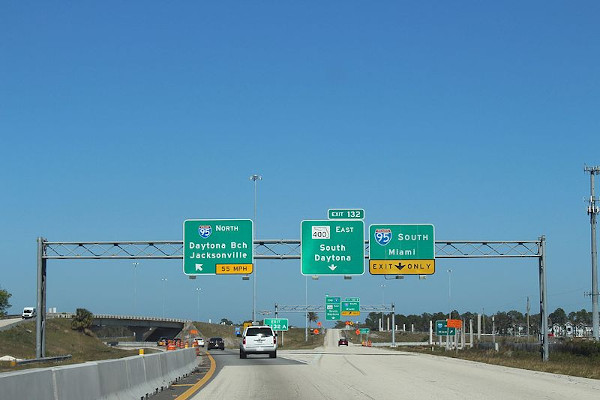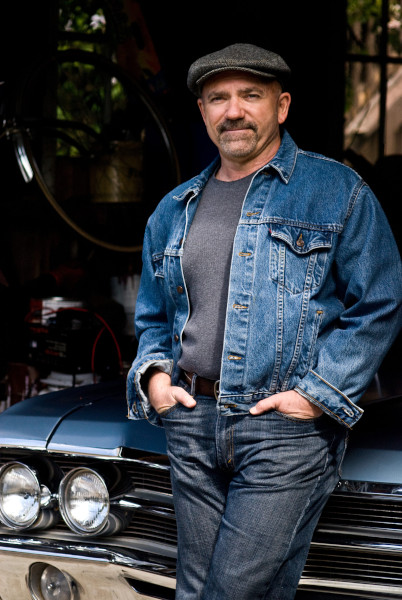Award-Winning Writer Portrays a Moving Family Saga in ‘Someone to Watch Over’

Someone To Watch Over is the debut novel from award-winning screenwriter William Schreiber from Not a Pipe Publishing, a vivid and gripping Southern family saga. The following is an excerpt from the book.
After encounters with her deceased mother and father, which Lennie convinced herself were divine in nature—a stance that shattered her fragile relationship with her pragmatic brother, John—they near the completion of John’s recreation of a childhood vacation to a Cape Canaveral space launch he’d planned in their dad’s memory.
“What time is it?” John said. The golden light of dawn stabbed his eyes and made it difficult to focus on what seemed like a grin on his sister’s face.
“Launch time!” she said.
He straightened in his seat and gazed through the cab’s grimy back window. The burned-out family station wagon of their youth still hung off the wrecker’s tow arm. How long have I been asleep? He vaguely remembered Lennie taking over the driving after—wait a minute. Dad. He’d dreamed he’d seen the old man on the driveway court back home. John rubbed the sack-time from his eyes. What had Dad yelled to him? Stop looking the wrong way.
“I think we’re gonna make it!” she said, eyeing the plastic digital clock affixed to the dashboard. As Lennie eased the tow truck into the Florida Turnpike exit lane, steering toward an off-ramp for Cape Canaveral, something jolted him like an electric shock: the words Dad had thrown at him: Stop looking the wrong way!
“No!” Before his calculating mind could control his impulse, John grabbed the steering wheel and yanked the vehicle away from the upcoming exit. The rust-bucket truck veered left, and their charred heirloom fishtailed behind them, four-thousand pounds of slung steel that threatened to pull over the entire rig. Gas station coffee cups and food wrappers from hours on the road tumbled along the dash and avalanched John’s feet. Survival instincts she’d surely honed over her vagabond years kicked in, and Lennie urgently buried her right elbow into his cheek to fight him off.

“What the hell’re you doin’? This is our exit!” She leaned into him, battling for leverage as she tugged the wheel, hauling the tire-howling rig to the right, back toward the Cape exit lane. He bulled through her elbow and thrust the wheel to the left.
“Keep going!” he yelled.
“What!”
“I’ve been looking the wrong way!”
“What’re you talking about?”
“Just pull over, please!” Arms tangled from their fight for control of the wheel, they eased the chugging wrecker into the emergency lane until it came to a stop. John’s heart hadn’t raced this fast since the birth of his children.
“Last week, the day Dad died,” he said, his breathing labored from the tussle. “I was shooting baskets with him at the house. I wasn’t paying attention, drinking Gatorade, and Dad creamed me upside the head with a rocket pass. He laughed that laugh of his and said I was looking the wrong way.” Through the bewilderment on her face, he caught a glimpse of realization.

“The wrong way… That’s what he said to you at Hector’s last night,” Lennie said, the words barely escaping her lips. “When he showed up on the court…”
“Maybe he showed up. That’s all I’m saying. The launch is the wrong way.”
A tractor-trailer roared by, blasting balmy air into the cab window as Lennie glanced at time ticking away on the dashboard clock. “But this is it, Johnny. This is the exit. The launch. You said making it here was everything to you.” His calm expression baffled her. It was as if he’d gone deep into unfamiliar waters and resurfaced with a willingness to admit things could be different above and below a shared surface.
He shook his head ever so slightly. “At the gorge. You jumped. You jumped, Lennie.” His gaze locked with hers and he pressed a fingertip to her jaw, a steady pressure pivoting her head until her chin pointed straight ahead. “What’s that?” he said.
Lennie was lost. That what? The rising sun sparking off the chrome bulldog’s butt on the wrecker’s hood? Beyond it, the misty interstate’s lane markers ran into the distance. “The road?” she murmured like a confused game-show contestant.
Then she saw it, a smudge of reflective green framed by roadside trees. A sign just past their intended exit—Miami. 81 Miles.

And her world suddenly spun in a new, frightening direction. “What’re you doing, Johnny?” Her voice barely escaped the crumbling walls of her defense.
“I. Don’t. Know,” he said. They struck her as the three most honest words he had ever uttered to her. “You said you were giving me and my photography the shot of a lifetime at the gorge when you jumped. That’s Miami. It’s your shot. That’s the way we should be looking.”
She twisted her hands on the wheel, clinging to the only solid thing within her grasp. “But your spreadsheet. Your trip map.” She couldn’t avoid the pleading inflection in her response. “Dad didn’t go to Miami.”
John laughed—a single, solitary burst. “It’s not about the map.” She saw him look out at the early-morning wilderness of central Florida before he watched the road with her.
“It’s about what Dad would’ve done if he were here. It’s about his intentions in this life.”
The notion pinballed her mind. Dad . . . A raindrop hit the windshield. Miami . . . The possibility of finding her child there, which she had allowed herself to believe in and then abandoned when that belief crushed her, circled back. Everything about it wrapped around her at once: the pain, the joy, the anger, the renewed hope.

She reached up, turned on the cab light, and peeked in the rearview. Eyes? Bagged and bloodshot. Face? Sweaty grime in the fine lines she’d noticed creeping in around her eyes. Hair? A sop-frizzled disaster.
“Johnny?”
“Don’t worry. We’ll get you cleaned up.”
“I need a shower.”
“You sure do.”
Shifting in her seat, she glanced in the sideview mirror at their ruined childhood hanging onto the wrecker. The coast was clear. She pressed the gas pedal and got them back on the road. She didn’t want to make eye contact with her brother. Didn’t want to tempt fate. She put on her poker face, as if she could bluff destiny. So many things could go wrong with this new game plan, but she couldn’t let herself think about any of them.
A short time later, rolling past the turnpike’s Kissimmee exit, south of Orlando, she watched the ’53 Ford wrecker’s odometer turn to 746.7 miles. Wonder how many times that thing’s turned over?
“Godspeed,” John said out of nowhere. Glancing over, she saw him staring at something in his sideview mirror, totally engrossed. She looked into hers. A column of fire and smoke rose from the Cape behind them into the awakening sky.

Author Bio:
William Schreiber earned the 2019 Rising Star Award from the Women’s Fiction Writers Association for his novel, Someone to Watch Over. The book was adapted from his original screenplay, which has won or been nominated for many competition awards, including the Academy of Motion Picture Arts and Sciences’ prestigious Nicholl Fellowship in Screenwriting, as well as numerous Best Screenplay awards at film festivals throughout the country. A native of Augusta, Georgia, Schreiber grew up in Fort Myers, Florida, along the Gulf of Mexico and now lives in Seattle, Washington, with his wife, Pam.
Highbrow Magazine
Image Sources:
--R9 Studios Florida (Flickr, Creative Commons)
--Michael Rivera (Wikipedia.org, Creative Commons)
--Steffenetti Emiliano (Wikimedia.org, Creative Commons)
--Book cover and photo of the author: WilliamSchreiber.com
----Chiplanay (Pixabay, Creative Commons)































































































































































































































































































































